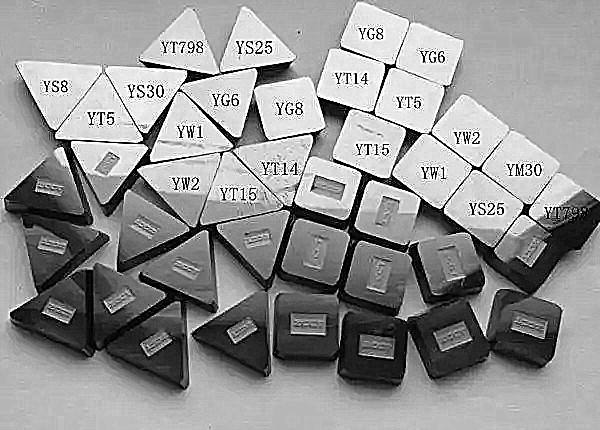
Overview of Grades
- YG6: This grade is known for its high wear resistance and is often used for semi-finishing and finishing operations on cast iron, non-ferrous metals, and alloy steels. It corresponds to ISO grades K15-K20, with a density of about 14.5-14.9 g/cm³ and hardness around 89-90 HRA.
- YG8: Offers high strength and impact resistance, making it suitable for machining materials like cast iron and non-ferrous metals. It corresponds to ISO grade K30, with a density of about 14.5-14.9 g/cm³ and hardness around 89 HRA.
- YG10: While not as commonly referenced as YG6 or YG8, YG10 typically offers a balance between wear resistance and toughness. Specific international grade equivalences are not widely documented, but it generally falls within the range of K20-K30.
- YG15: Known for its high bending strength and is used in applications requiring wear resistance, such as punching dies. It corresponds to a lower density and hardness compared to YG6 and YG8, with a density around 14.0 g/cm³ and hardness of about 87 HRA.
International Grade Equivalences
The international grades for these carbides are primarily based on ISO standards, which categorize them based on their properties and applications:
| Grade | ISO Equivalent | Properties and Applications |
|-------|----------------|-----------------------------|
| YG6 | K15-K20 | High wear resistance, semi-finishing and finishing of cast iron and alloy steels. |
| YG8 | K30 | High strength and impact resistance, suitable for machining cast iron and non-ferrous metals
| YG10 | Not specified | Generally offers a balance between wear resistance and toughness. |
| YG15 | Not specified | High bending strength, used for punching dies and wear-resistant parts.
These grades are part of a broader classification system that includes various international standards like ISO and US "C" grades, but there is no universal standard across all manufacturers.
Chemical Composition and Properties
- YG6:
- Composition: WC: 94%, Co: 6%.
- Properties: Density: 14.6-15.05 g/cm³, Hardness: ≥ 89.5 HRA, Bending Strength: ≥ 1670 MPa.
-YG8:
- Composition: WC: approximately 92%, Co: 8%.
- Properties**: Density: 14.6 g/cm³, Hardness: 89.5 HRA, Bending Strength: 2320 MPa.
- YG10:
-Composition: WC: approximately 90%, Co: 10% (general trend, exact composition may vary).
- Properties: Generally, higher cobalt content increases toughness but reduces hardness compared to lower cobalt grades like YG6 and YG8.
- YG15:
- Composition: WC: approximately 85%, Co: 15% (general trend, exact composition may vary).
- Properties: Higher cobalt content provides increased toughness and impact resistance, suitable for applications requiring more flexibility than YG6 or YG8.
These grades are used in various applications, including cutting tools, wear-resistant parts, and molds, depending on their specific properties such as hardness, toughness, and wear resistance.
PREV : Comparison table of commonly used cemented carbide grades in various countries NEXT : What Kind Of Tungsten Steel Is Used For Flatbed Cutting Machine Blades? Production Process





